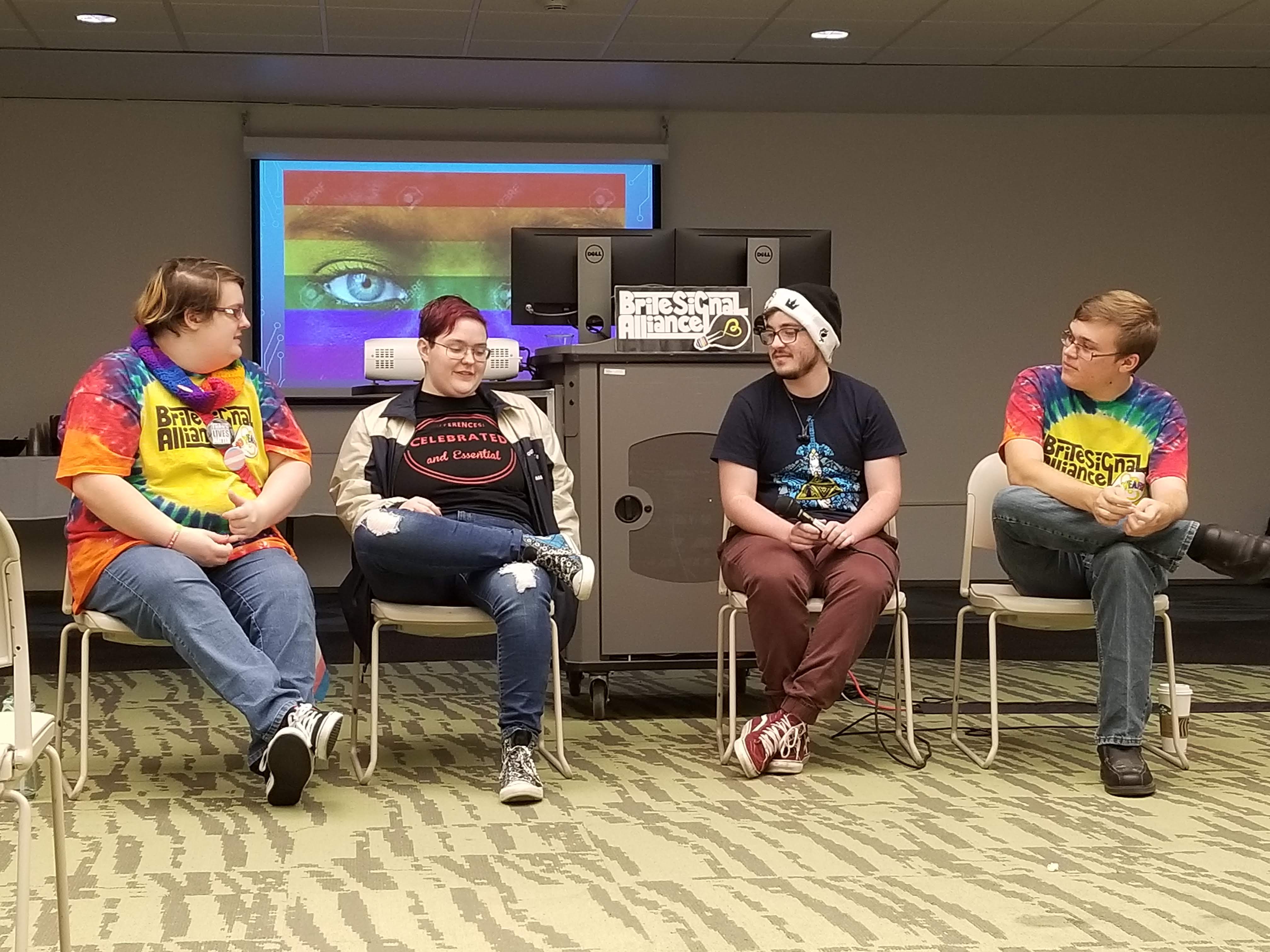As part of Sinclair’s acknowledgment of National Coming Out Day, Larry Lindstrom, Multifaith Campus Ministry Chaplain and LGBTQ+ Support Liasion, and Kara Brown, Advisor to Brite Signal Alliance, the student organization for the LGBTQ+ community, hosted a panel of students sharing their experience coming out.
Coming out as a member of the LGBTQ+ community can be a struggle, as people can face rejection in the form of physical or mental abuse from family, friends and strangers.
Members of the panel described their personal experiences coming out and how the reactions of those close to them weren’t always what they expected.
“I think my story really shows two sides of it,” Nate Smith, a student and member of Brite Signal Alliance said. “When I came out to my mom, I was nervous as hell… I told her, and her reaction was ‘ok, cool.’ She has always been supportive of me and had my back in that regard and didn’t see me as any different of a person, which is probably the best reaction you could have.
“When I told my father I was out at The Greene, and when I told him he decked me in the face in front of 500 people. He told me I was gonna burn in hell, all that typical stuff… Imagine what would’ve happened if I told him when I was living with him or been visiting him alone.”
Brown stated that coming out is not just dealt with by the person coming out, but is a decision that has to be weighed and calculated for every person they know, be it a friend, family member or coworker, as everyone’s reaction could be different and have their own set of consequences.
Related Articles:
“One thing with coming out that I’ve come to understand is that it is a process for [parents] as much as it is for me, which sucks,” Ethan Sacrenty, member of Brite Signal said. “When I first came out it was, ‘You’re going to hell, and she was so upset…’ but now it’s ‘You and KC [their fiance] are coming over for Christmas right?’
“I wish it wasn’t a process for everyone else to understand, but going along with them as they’re going along with you is very important,” Sacrenty said.
“Coming out is not a one-time process,” Sky Burke, President of Brite Signal Alliance said.
“The reactions when I came out as bi and when I came out as trans were totally different, “Jaden Cypher of Bright Signal Alliance said. “I came out to my mom as trans… she has a nickname for me ‘Princess Petunia Blossom,’ which even if I wasn’t trans I wouldn’t want her to call me that.”
Following his coming out, Cypher and his mom got into a fierce argument that changed his perspective on her permanently.
“She basically just stood there telling me ‘you’re wrong, you’re lying to yourself this is not who you are,’ and that hurt because she was the second person I came out to as trans and having that be the second person’s view was… not great,” Cypher said.
Each member of the panel spoke about how they were able to create alternate families and support systems.
All four confirmed that they’ve cultivated their support system online, but they stress the importance of being aware of their surroundings and avoiding situations that may put them in danger.

(Photos by Brian Walker)
Burke also recommended going to brick and mortar support groups for the LGBTQ+ community, such as Brite Signal Alliance, the Greater Dayton LGBT Center or PFLAG Dayton.
Henry Wolski
Associate Editor


